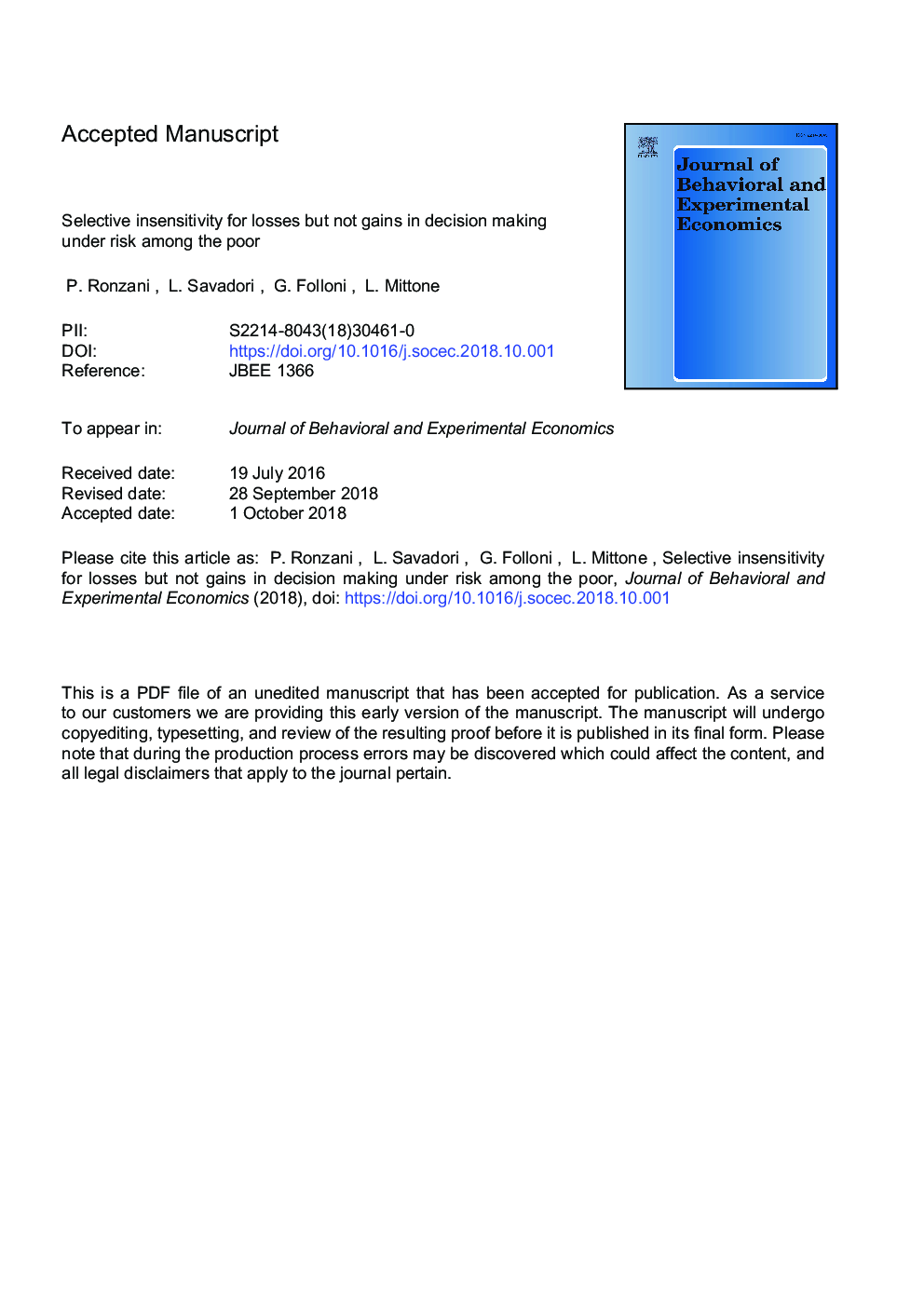| Article ID | Journal | Published Year | Pages | File Type |
|---|---|---|---|---|
| 11023479 | Journal of Behavioral and Experimental Economics | 2018 | 34 Pages |
Abstract
We analyzed decision making under risk in a group of 50 poor individuals and a group of 50 rich individuals from the city of Lima, Peru, using the Columbia Card Task game. Contrary to the decisions of the rich, the decisions of the poor were insensitive to changes in the magnitude of potential losses: the risk taking of the poor did not increase when potential losses were low compared to when they were high. The decisions of the poor were also significantly less sensitive to changes in the probability of potential losses, compared to those of the rich. On the contrary, similarly to the decisions of the rich, the decisions of the poor were significantly sensitive to changes in the gain amount: risk taking was higher when the gain amount was higher than when it was lower. The rich sample from Lima showed a similar pattern of risk-taking behavior as other non-poor populations from previous studies. Furthermore, the poor scored higher on the perceived constraints scale and showed the same level of unrealistic optimism for negative events, but less unrealistic optimism for positive events, than the rich.
Related Topics
Social Sciences and Humanities
Economics, Econometrics and Finance
Economics and Econometrics
Authors
P. Ronzani, L. Savadori, G. Folloni, L. Mittone,
